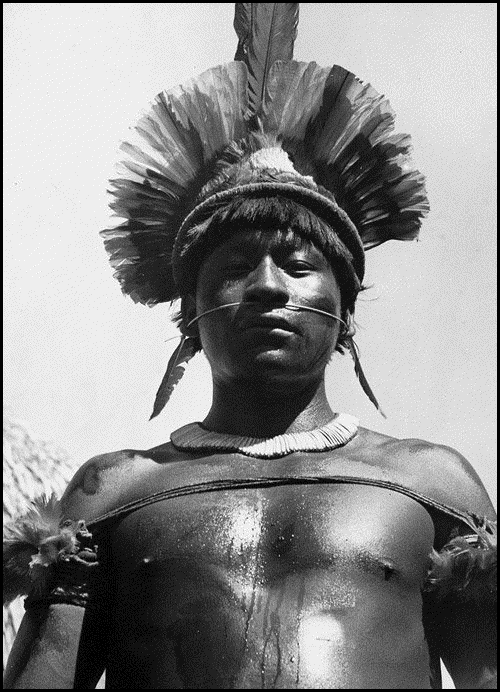860 Days, One Step at a Time
Ed Stafford
(Plume)

For one thing, you don't walk the Amazon. It's not a normal river, certainly not benign like the Hudson or the Danube or the Po. It doesn't want to be a neat river with neat borders. It goes its own way, an oversized, fat tumble of water that keeps running all over the place whenever and wherever it wants to, ignoring all maps and predictions. As Stafford notes,
The Amazon is not a normal river, like the Thames, for instance --- it is a focal point of a huge sheet of water that surges through the forest when the waters are high. This deluge of water can be more than 100 kilometers wide in places; it is the same distance as London to Paris at its mouth where it gushes out at over 200,000 cubic metres per second into the Atlantic Ocean.
It is significant, I suppose, that this revelation comes to us on page 259, after we (and Stafford, and his companions) have wrestled with this beast for more than 8000 kilometers, over two years, scrambling over root systems beset with thorns and sawgrass, the two of them often marching soddenly along, at hip or waist (or chin) level with the water.
This is no leisurely stroll in the gorgeous bird-filled jungle forest: this is a steamy battle for survival, not only against the water itself, but crocodiles, mosquitoes, black bugs, and pirhana. And --- worst of all --- those Amazon natives who have been so screwed so often by white men with backpacks, searching for timber, oil, and drugs --- so much so that they routinely carry shotguns and machetes to fend off any and all honkies when they approach their villages.
In Peru, in the land of the Asheninkas of the Ucayali, Stafford and his companion Cho are getting ready to take off from an island to go down the river and he looks behind him and
- there were no fewer than five dugout canoes heading in our direction --- all full of armed Asheninkas. Many of the men were standing up in these narrow vessels and were armed with either shotguns or bows and arrows. The women among them had machetes. As the boats beached, the men and women swarmed onto the island and approached us furiously.
His reaction: "I was somewhat vexed by the inconsiderate Indians coming to kill me. Didn't they realize we were pushed for time?"
Ed and Cho were escorted to the village of Nuevo Pozo, and forced to "empty our packs and to explain each item of equipment."
- Now a familiar routine, I went about unpacking each item slowly and explaining exactly what it was for. The combination of genuine fascination in what we were carrying and the passing of a lot of time seemed to calm the people considerably.
The upshot: Ed finally tells them that the two of them are hungry. A woman is found barbecuing plantain, these they buy and are offered "some chocolate biscuits which we refueled on in seconds like animals."

Further, expect to be a foodsource for countless bugs. Whenever Ed sweeps his hand across his chest, it leaves a bloody swath behind ... from all the mosquitoes feeding on him. And then there are the botflies. "I had a small botfly in my head," he announces casually. "The parasites grow inside your flesh. The sensation is just like a pinprick and it could be irritating, especially when I wanted to sleep." The cure?
- To get the botfly out you have to kill it as the spines make it almost impossible to squeeze out alive. Suffocation was the simplest method. I had a small tube of superglue that I used to mend things and Cho simply dabbed a bit over the opening that it breathed out of and the botfly was dead in a matter of hours. After breaking the skin with a tree spine the next day, as it had grown over, Cho simply squeezed and then gently pulled at the larva until it came out whole.
"That part was extremely satisfying," he reports,
The part that Stafford doesn't explain is why in God's name he had to start his trip in Peru, crossing over into Columbia, and finally getting to Tabatinga, Brazil, which is where most normal people believe the Amazon originates.. "It had taken just over a year to reach Brazil," he reports, and once there, the Amazon, what little of it there was, got its name changed to the Solimoes --- which it will be until they get down to Manaus, 2,000 kilometres downstream.
By my lights, if you are intent on walking the Amazon, all you have to do is to fly into Manaus, Brazil, a real city with real people who don't want to kill you like the Peruvians seem so intent on doing. In Manaus you can fill up your backpacks with energy bars and Miso soup --- and you are on your way. But no ... Stafford wants to suffer, and suffer he does. With cuts and bruises from the tangled route he has chosen, with botflies and mosquitoes, unfriendly natives, blisters and days of limited rations, and, worst of all --- he does go on about it at length, boringly --- boredom.
From his notebook. "OK, I'm depressed. Quite badly so. I have fleeting moments of happiness but they are all short-lived and basically I'm unhappy."
- I felt OK but tired, bored of walking, bored of my guides, bored of the expedition. It's all compounded by having such good access to the Internet. A life of beers and girls and friends and love is just on the other side of the screen and yet I've never been so lonely.
I started Walking the Amazon with some trepidation. The prologue --- including the indians-five-canoes passage above plucked from the middle of the book and stuck up front (agents always want it to have a bang-up start) --- includes a sentence that got to me: "The carved boats cut through the choppy river fluently." And I think, carved boats could cut through the choppy river "quickly," or "languidly," or "slowly," or "rapidly" ... but please, Ed, not "fluently." People can speak a language fluently, but boats never do anything like that.
So I was ready to dump this one from the get-go, but you know me: I'm persistent. Like Ed. Maybe he doesn't write worth shit, maybe he could use a major overhaul for his book (an editor could have chopped this one down to size in a couple of weeks), but I, like Ed, soldiered on and, you know what? The journey itself brings Walking the Amazon to life.

It's a mad journey, a silly one, maybe even a stupid one ... but it's got legs, a certain carrying power, what with all these unfriendly indians with their bows and arrows and the women with machetes and, on top of that, the floodwaters, the sawgrass, the caidas, the pathless paths up certain bad mountains, down into the deepest canyon in the world, and then there's all those policemen who want to bust Ed for thinking he can pass through their jurisdictions without the proper visas (although I hope he was wise enough to bribe the worst of them).Hell, everything gets in the way, including Ed's terrible moods, making him lash out at everyone, even poor sweet Cho his Peruvian companion who is strong and loyal and brave and true...
... and, yet, it's all part of the scene, you have to stop fighting it, you can't make it go away: you picked your drama, and now its all yours. So you might as well get into it and on with it, even enjoy it ...
... which right there at the end, he finally does.